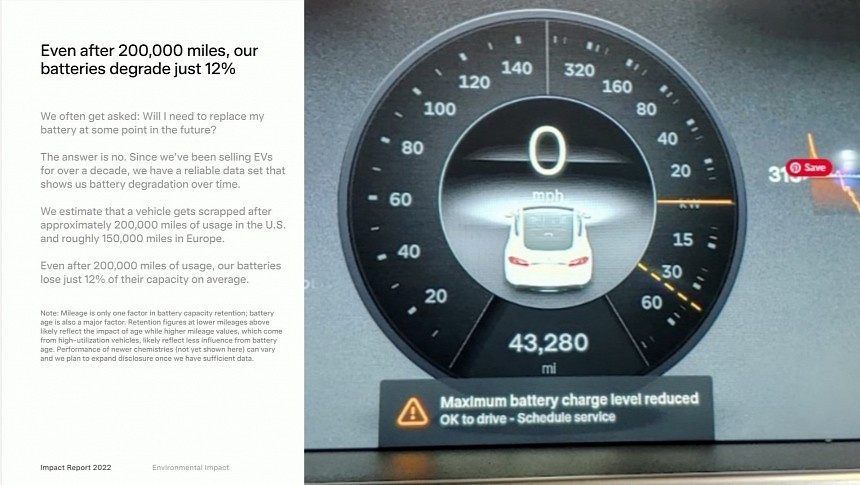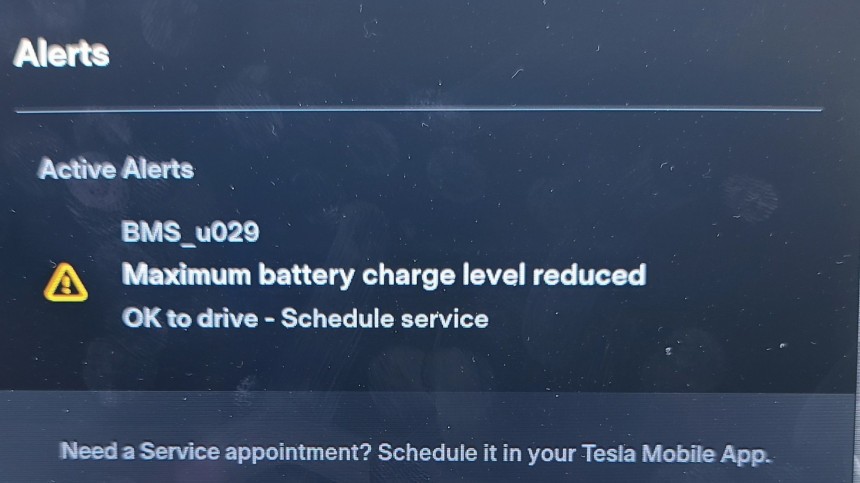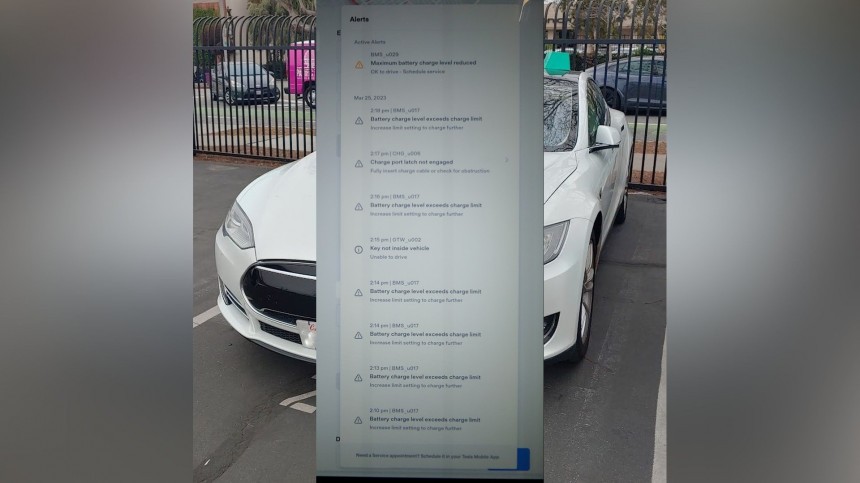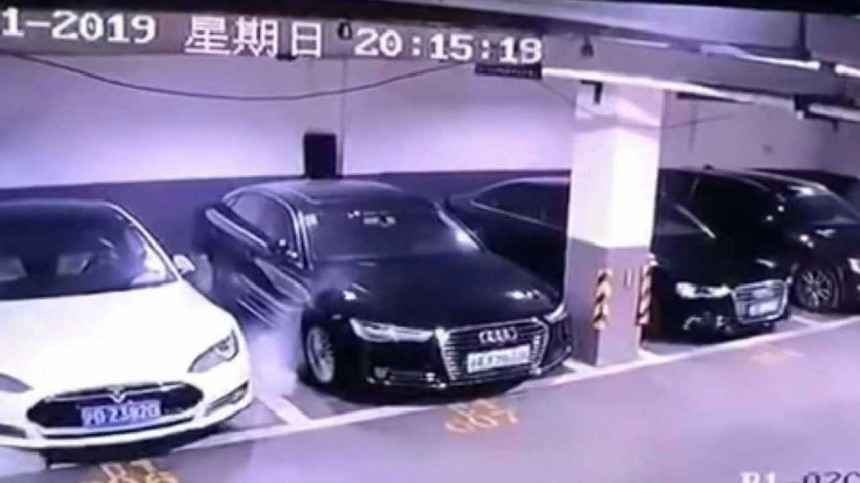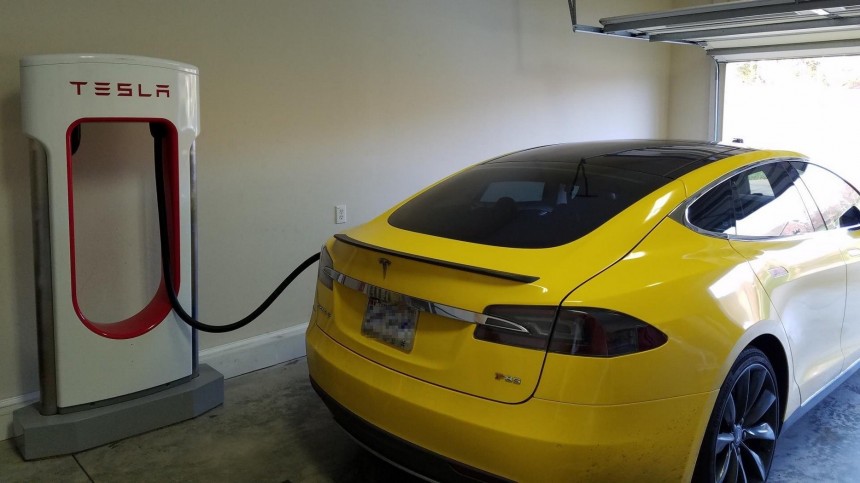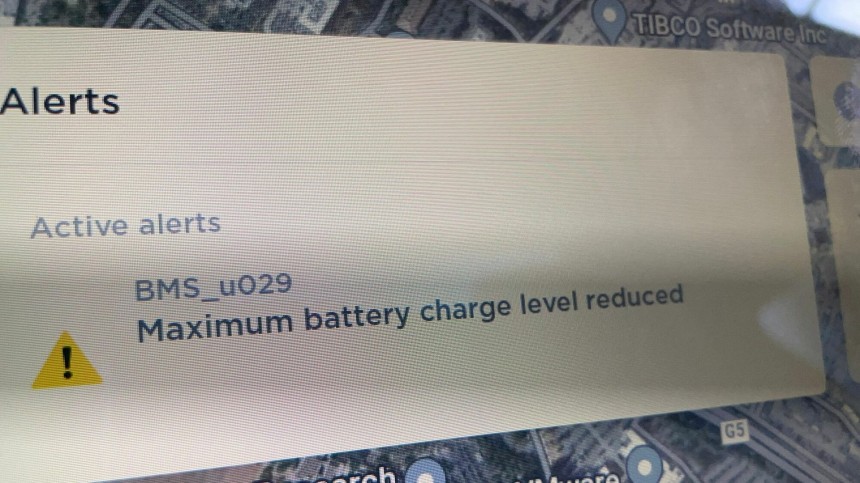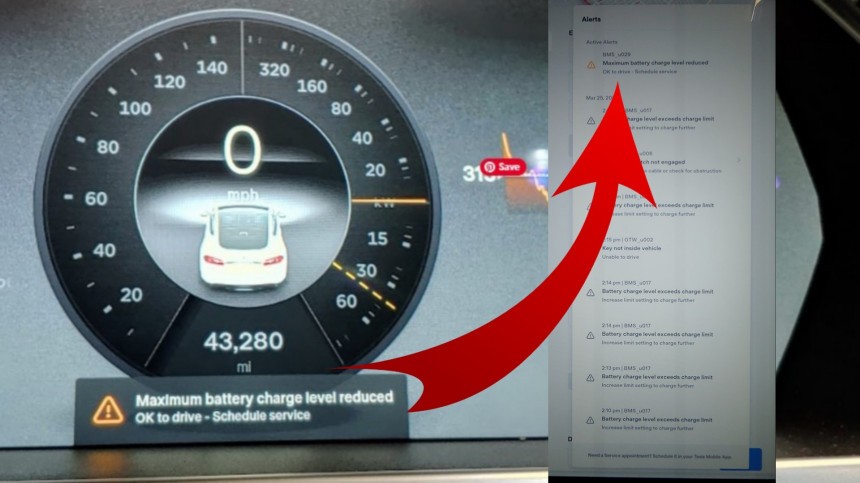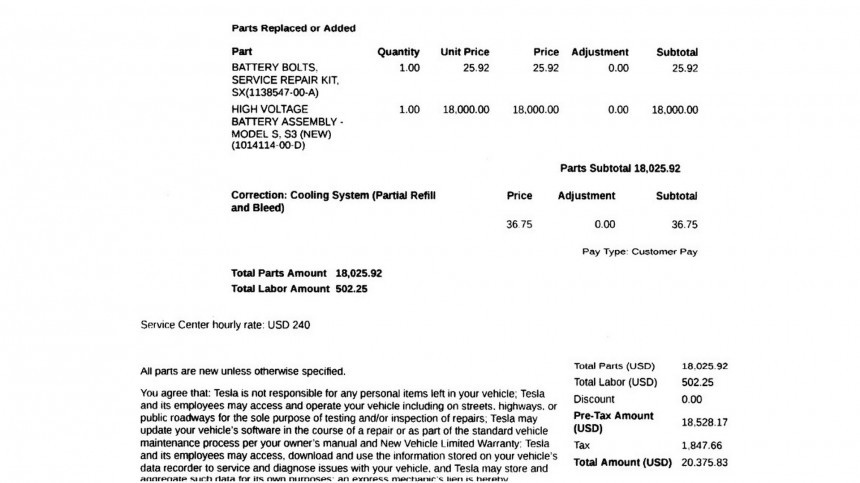The BMS_u029 error messages are getting so frequent that the Facebook group joining affected customers and those interested in learning more about that now have 263 members. A lawsuit was sure to follow. However, no one could predict that the lawyers in charge would choose to equate over-the-air (OTA) updates to a hacker attack. Yet, this is precisely what Case No. 3:23-cv-02321 has done.
According to the complaint, "Tesla knowingly and intentionally exceeded its authorized access to the Class Vehicles. Plaintiffs and other putative Class members did not consent to Tesla's manipulation of the software controlling the batteries in the Class Vehicles, including consenting to updates that would harm the performance of their vehicles, nor did Plaintiffs consent to Tesla lowering the batteries' performance capacity or, in some cases, rendering the battery inoperable." This starts to give you a glimpse of the bag of cats that this lawsuit is.
First of all, it does not refer solely to the BMS_u029 error message. The complaint gathers four plaintiffs: David Bui-Ford, Igor Kravchenko, Micah Siegal, and Lucas Butler. Only Bui-Ford had the error message for sure in his 2013 Tesla Model S P85+. Butler had an OTA update in his car that made it brick. After he towed it to a Tesla Service Center, he was told that his 2013 Model S P85+ battery pack was dead. Yes, Bui-Ford and Butler had the same Model S derivative, made in the same year. Butler would have to pay "$20,798.56 to replace the battery and component parts," but the lawsuit does not clarify if BMS_u029 was involved.
The other two plaintiffs were just complaining about an excessive daily battery charge drain in Kravchenko's case (8% instead of the usual 1% to 2% when he bought his 2021 Model S) and "a modest drop in the stated/estimated capacity of the battery" for Siegal, who owns "a used Tesla Model S." The complaint does not specify which.
What connects all these diverse cases is the thesis that Tesla "deliberately and significantly" interfered "with the car's performance through software updates that reduce the operating capacity of the vehicles." This is why the lawsuit argues that Tesla hurt California's Computer Data Access and Fraud Act and California's Computer Fraud and Abuse Act. The complaint elaborates on that on page 22.
According to the lawyers, "the federal Computer Fraud and Abuse Act ("CFAA") establishes a private cause of action against a person who 'knowingly accessed a computer without authorization or exceeding authorized access,' and whose prohibited access results in damage or loss in excess of $5,000 in any one-year period. 18 U.S.C. § 1030(a)(4)." As you have already seen, the attorneys argue that Tesla "exceeded its authorized access to the Class Vehicles." However, it is the following allegation that makes the comparison between Tesla and a hacker more clear.
The complaint proceeds by stating that "the CFAA also establishes liability against whomever: 'knowingly causes the transmission of a program, information, code or command, and as a result of such conduct, intentionally causes damage without authorization to a protected computer' (§ 1030(a)(5)(A)); 'intentionally accesses a protected computer without authorization, and as a result of such conduct, recklessly causes damage' (§ 1030(a)(5)(B)); or 'intentionally accesses a protected computer without authorization, and as a result of such conduct, causes damage and loss' (§ 1030(a)(5)(C))."
The lawsuit cites another class action as proof that Tesla has been doing so: the one that challenged the BEV maker after it capped the cell voltage of hundreds of Model S and Model X units. It states that "Tesla did not even bother to challenge the allegations: the parties moved almost immediately to settlement discussions." Although I have no access to how that class action unfolded in court, I can say that it was filed on August 7, 2019, and settled on July 29, 2021. These almost two years were enough for the warranty of several vehicles to expire – and they were far from immediate. Did Tesla and the plaintiffs indeed take two years just to discuss the settlement? It would be weird if that were really the case.
Although a jury may eventually decide that Tesla's OTA updates had predatory behavior, framing them that way could represent a major blow. After all, Tesla uses these updates as a marketing argument, and its most loyal customers frequently brag about how their "computers on wheels" are much better than any car. A simple look at the class action these attorneys used as an example would have helped them frame the whole thing in a more convincing way. The voltage cap lawsuit accused Tesla of concealing design flaws with OTA updates, not of damaging vehicles on purpose just because – which makes no sense.
These attorneys could also have talked with a real hacker like Jason Hughes. The Tesla Hacker publicly protested against the BEV maker for remotely modifying his Model S so that it would not fast charge anywhere. Tesla just argued that this was a safety measure without elaborating. At the same time, Hughes could have told them that the error messages only emerge when the battery packs really present a massive failure. The weird part is having so many of these messages appearing at the same time.
In fact, the complaint uses a company that performs error resets as an example. According to the lawsuit, a Hybrid ReVolt sales contract would have stated that the battery pack did not have any underlying issue that could justify the message (the bolds are on me):
"For a reason only known to Tesla, in roughly August of 2022, Tesla vehicles received a software update that could trigger a BMS_[u]029 error, which resulted in the vehicle being unable to fully charge. Upon diagnosing BMS_u029, no known fault could be associated with the vehicle[']s battery pack. Thus it is unclear as to why the BMS_u029 error is being triggered. Tesla's solution is to replace the entire traction pack at a great expense."
I have tried contacting Hybrid ReVolt to learn more about this case but have not heard from it yet. Other companies, such as 057 Technology and ReCell, condemn resetting error messages because this would be just a dangerous way to deceive prospective buyers into buying a Tesla with a defective battery pack. Hughes pledged to help customers eventually fooled by this practice.
A good argument the lawsuit makes is that Tesla repeatedly said the battery pack was supposed to "outlast the vehicles themselves." I have recently discussed the same thing, disclosed in the Tesla Impact Report 2022, but previous versions of the document since 2019 have stated that Tesla's "batteries are designed to function for the entire life of the vehicle." They also said that the BEV maker estimated "that a vehicle gets scrapped after approximately 200,000 miles of usage in the US and roughly 150,000 miles in Europe." The 2014 Model S 85 that Bob Atkin's mother-in-law purchased new had only a bit more than 43,000 miles when the BMS_u029 error determined its battery pack was toast.
If this lawsuit is granted class-action status, its discovery phase should bring up everything the voltage cap lawsuit settlement prevented the public from knowing. The attorneys said it should help to answer these "common questions of law and fact:"
"a. Whether Tesla engaged in the conduct alleged herein;
b. Whether Tesla knew about the effect of software updates on battery performance, and if so, how long Tesla knew or should have known as much;
c. Whether Tesla designed, advertised, marketed, distributed, leased, sold, or otherwise placed the Class Vehicles into the stream of commerce in the United States;
d. Whether Tesla omitted material facts about the quality and durability of the batteries in the Class Vehicles;
e. Whether Tesla's conduct violates the CFAA, the CDAFA, the UCL, and constitutes trespass to chattel under applicable common law;
f. Whether Tesla misrepresented the truth to consumers when it advised them that the software updates cannot be undone; and
g. Whether Plaintiffs and the other Class members are entitled to damages and other monetary relief and, if so, what amount."
Tesla's attorneys can defend the company by stating that its customers accepted to have OTA updates, that they are an inherent part of the experience with these cars, and that the error messages have nothing to do with the updates. As Hughes once explained, they may have only triggered standard tests that the battery management system (BMS) must regularly perform. The bad news is that Tesla may be able to dismiss the lawsuit based on these arguments. Why would the manufacturer hack its products to decrease their performance?
A more critical argument would have been to ask why these tests seem to be only happening now and if they were performed with adequate frequency before the warranty expired for hundreds of Model S units. Focusing on vehicles with BMS_u029 and BMS_u018 error messages would also have been wiser. I would not be surprised if another lawsuit tried to use these questions to clarify what is happening to these Model S units that had voltage caps and are now failing in droves.
First of all, it does not refer solely to the BMS_u029 error message. The complaint gathers four plaintiffs: David Bui-Ford, Igor Kravchenko, Micah Siegal, and Lucas Butler. Only Bui-Ford had the error message for sure in his 2013 Tesla Model S P85+. Butler had an OTA update in his car that made it brick. After he towed it to a Tesla Service Center, he was told that his 2013 Model S P85+ battery pack was dead. Yes, Bui-Ford and Butler had the same Model S derivative, made in the same year. Butler would have to pay "$20,798.56 to replace the battery and component parts," but the lawsuit does not clarify if BMS_u029 was involved.
What connects all these diverse cases is the thesis that Tesla "deliberately and significantly" interfered "with the car's performance through software updates that reduce the operating capacity of the vehicles." This is why the lawsuit argues that Tesla hurt California's Computer Data Access and Fraud Act and California's Computer Fraud and Abuse Act. The complaint elaborates on that on page 22.
The complaint proceeds by stating that "the CFAA also establishes liability against whomever: 'knowingly causes the transmission of a program, information, code or command, and as a result of such conduct, intentionally causes damage without authorization to a protected computer' (§ 1030(a)(5)(A)); 'intentionally accesses a protected computer without authorization, and as a result of such conduct, recklessly causes damage' (§ 1030(a)(5)(B)); or 'intentionally accesses a protected computer without authorization, and as a result of such conduct, causes damage and loss' (§ 1030(a)(5)(C))."
Although a jury may eventually decide that Tesla's OTA updates had predatory behavior, framing them that way could represent a major blow. After all, Tesla uses these updates as a marketing argument, and its most loyal customers frequently brag about how their "computers on wheels" are much better than any car. A simple look at the class action these attorneys used as an example would have helped them frame the whole thing in a more convincing way. The voltage cap lawsuit accused Tesla of concealing design flaws with OTA updates, not of damaging vehicles on purpose just because – which makes no sense.
In fact, the complaint uses a company that performs error resets as an example. According to the lawsuit, a Hybrid ReVolt sales contract would have stated that the battery pack did not have any underlying issue that could justify the message (the bolds are on me):
"For a reason only known to Tesla, in roughly August of 2022, Tesla vehicles received a software update that could trigger a BMS_[u]029 error, which resulted in the vehicle being unable to fully charge. Upon diagnosing BMS_u029, no known fault could be associated with the vehicle[']s battery pack. Thus it is unclear as to why the BMS_u029 error is being triggered. Tesla's solution is to replace the entire traction pack at a great expense."
A good argument the lawsuit makes is that Tesla repeatedly said the battery pack was supposed to "outlast the vehicles themselves." I have recently discussed the same thing, disclosed in the Tesla Impact Report 2022, but previous versions of the document since 2019 have stated that Tesla's "batteries are designed to function for the entire life of the vehicle." They also said that the BEV maker estimated "that a vehicle gets scrapped after approximately 200,000 miles of usage in the US and roughly 150,000 miles in Europe." The 2014 Model S 85 that Bob Atkin's mother-in-law purchased new had only a bit more than 43,000 miles when the BMS_u029 error determined its battery pack was toast.
"a. Whether Tesla engaged in the conduct alleged herein;
b. Whether Tesla knew about the effect of software updates on battery performance, and if so, how long Tesla knew or should have known as much;
c. Whether Tesla designed, advertised, marketed, distributed, leased, sold, or otherwise placed the Class Vehicles into the stream of commerce in the United States;
d. Whether Tesla omitted material facts about the quality and durability of the batteries in the Class Vehicles;
e. Whether Tesla's conduct violates the CFAA, the CDAFA, the UCL, and constitutes trespass to chattel under applicable common law;
f. Whether Tesla misrepresented the truth to consumers when it advised them that the software updates cannot be undone; and
g. Whether Plaintiffs and the other Class members are entitled to damages and other monetary relief and, if so, what amount."
A more critical argument would have been to ask why these tests seem to be only happening now and if they were performed with adequate frequency before the warranty expired for hundreds of Model S units. Focusing on vehicles with BMS_u029 and BMS_u018 error messages would also have been wiser. I would not be surprised if another lawsuit tried to use these questions to clarify what is happening to these Model S units that had voltage caps and are now failing in droves.
